Episodes
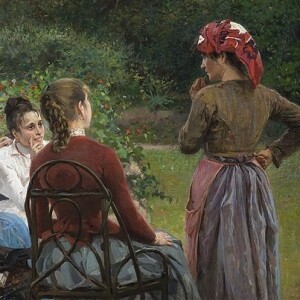
Tuesday Jan 02, 2024
Aristotle on Friendship with Dr. Pavlos Papadopoulos
Tuesday Jan 02, 2024
Tuesday Jan 02, 2024
“Social connection,” wrote U.S. Surgeon General Dr. Vivek Murthy in his May 2023 “Advisory on our Epidemic of Loneliness and Isolation,” “is a fundamental human need, as essential to survival as food, water, and shelter. Throughout history, our ability to rely on one another has been crucial to survival.”
That may come as news to many modern Americans, but back in the fourth century BC Aristotle would have told you the same things. Friendship, he wrote in his Nichomachean Ethics, “is not only a necessary thing but a splendid one. We praise those who love their friends, and the possession of many friends is held to be one of the fine things of life.”
Dr. Pavlos Papadopoulos recently taught The Nichomachean Ethics with our Wyoming Catholic College juniors and looking at, among other things, friendship.
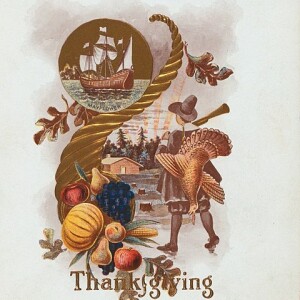
Tuesday Nov 21, 2023
Giving Thanks with President Kyle Washut
Tuesday Nov 21, 2023
Tuesday Nov 21, 2023
The great Roman statesman and orator, Marcus Tulius Cicero said:
In truth… while I wish to be adorned with every virtue, yet there is nothing which I can esteem more highly than being and appearing grateful. For this one virtue is not only the greatest, but is also the parent of all the other virtues.
The ancients understood—as most moderns don’t—that virtuous living makes us happy. Thus, Cicero argued, gratitude, thanksgiving is the gateway to happiness.
With the celebration of Thanksgiving Day approaching, Wyoming Catholic College President Kyle Washut had this to say about the virtue of thanksgiving.
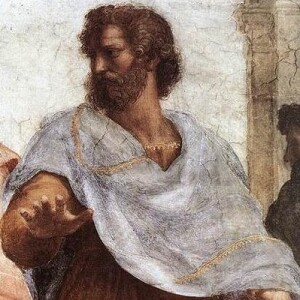
Tuesday Sep 19, 2023
Aristotle’s ”Nicomachean Ethics” with Dr. Pavlos Papadopoulos
Tuesday Sep 19, 2023
Tuesday Sep 19, 2023
“Every art and every investigation, and similarly every action and pursuit,” wrote Aristotle at the beginning of his book on ethics, “is considered to aim at some good. Hence the good has rightly been defined as ‘that at which all things aim’.”
We all, Aristotle contends, aim at what we believe is the good. But how do we know what is truly good? And how is it possible as he tells us, that the way to aim at the good has to do with politics?
Dr. Pavlos Papadopoulos is reading Aristotle’s Nicomachean Ethics with our Wyoming Catholic College juniors. Here's what he had to say about the good.
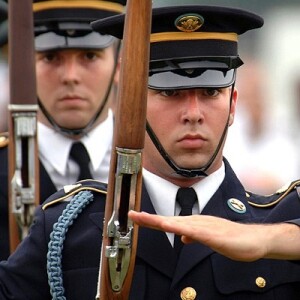
Tuesday Feb 14, 2023
“Dumb but Disciplined: Why You Should Wake Up to Your Alarm” with Mr. Aidan Wood
Tuesday Feb 14, 2023
Tuesday Feb 14, 2023
“As a modern man,” wrote Wyoming Catholic College senior, Aidan Wood,” the paths to happiness are seemingly endless, and endlessly confusing. However, there is one simple path that guarantees man’s mission: the path of discipline.”
We all know the feeling: While trying to lose some weight, you pass the donuts someone put in the break room. Just one won’t hurt. Reading St. Thomas Aquinas is a great idea, but I’m tired in the evening and TV is an easier option. The alarm goes off, but well… there’s a snooze button.
Our guest, Mr. Aidan Wood, wrote his senior thesis and oration on the topic of discipline. Clear here to hear his presentation.
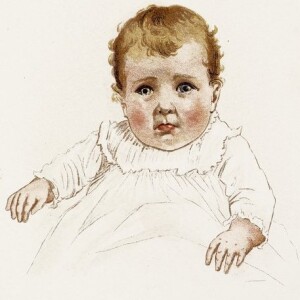
Tuesday Jan 17, 2023
Pro-Life After Dobbs 2: The Arguments for Abortion Rights with Dr. Michael Bolin
Tuesday Jan 17, 2023
Tuesday Jan 17, 2023
“Usually when I debate on this topic,” said pro-life advocate Helen Alvare, “I feel like I’m behind a podium speaking French and the other person is behind a podium speaking Finnish. There’s no common ground.”
Part of the reason there is no common ground in the abortion debate is that our pro-abortion family and friends don’t understand our arguments and we don’t understand theirs.
Wyoming Catholic College philosopher, Dr. Michael Bolin allows his students to puzzle over what might be the best philosophical argument for abortion rights: Judith Jarvis Thomson’s “A Defense of Abortion” published in the journal Philosophy & Public Affairs in 1971—about 18 months before Roe v. Wade was decided.
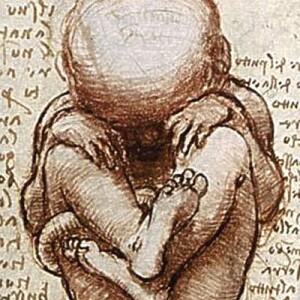
Tuesday Jan 10, 2023
Pro-Life After Dobbs 1: Humanae Vitae with Dr. Jeremy Holmes
Tuesday Jan 10, 2023
Tuesday Jan 10, 2023
At a banquet for a local pregnancy care center the speaker noted the U. S. Supreme Court’s decision in Dobbs overturned Roe v. Wade. It’s true and thanks be to God. But, the speaker suggested, quoting Winston Churchill, “Now this is not the end. It is not even the beginning of the end. But it is, perhaps, the end of the beginning.” That is, the battle rages on and could be uglier than ever.
With that in mind, this week and next will focus on the theology and philosophy of life beginning this week as theologian, Dr. Jeremy Holmes, discusses the encyclical Humanae Vitae.
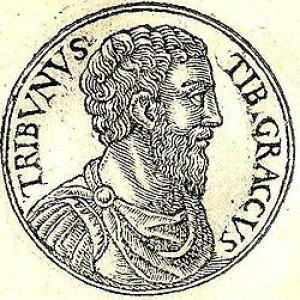
Tuesday Oct 04, 2022
Plutarch, Politics, and the Gracchi Brothers with Dr. Tiffany Schubert
Tuesday Oct 04, 2022
Tuesday Oct 04, 2022
Studying the lives of men and women is complicated, but it is from that study that we see vice and virtue and the end results of each, we learn of honor and dishonor, sacrifice and selfishness, self-discipline and dissipation.
The Greek Platonist and priest of Apollo at Delphi, Plutarch understood the project of instruction by writing the lives of great Roman and Greeks.
Dr. Tiffany Schubert has been teaching Plutarch’s Lives with the Wyoming Catholic College sophomores.
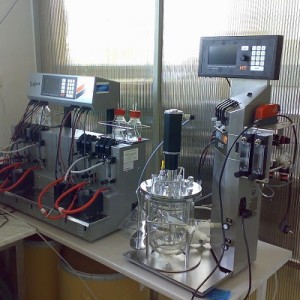
Tuesday Aug 16, 2022
An Introduction to Leon Kass’ ”L’Chaim and Its Limits” by Dr. Daniel Shields
Tuesday Aug 16, 2022
Tuesday Aug 16, 2022
In his essay, “L’Chaim and Its Limits: Why Not Immortality?” Dr. Leon Kass asks, “If life is good and more is better, should we not regard death as a disease and try to cure it?”
While “curing” death may seem far-fetched, the so-called trans-human project seeks to do just that.
Kass, an Orthodox Jew, wrote the essay for those with no or with little religion. Wyoming Catholic College philosopher, Dr. Daniel Shields gave the participants in this year’s Wyoming School of Catholic Thought this introduction to Kass’ essay before we broke into seminar groups.

Tuesday May 03, 2022
Leadership and ”The Abolition of Man” with Dr. Travis Dziad
Tuesday May 03, 2022
Tuesday May 03, 2022
In his book, After Humanity: A Guide to C.S. Lewis’s The Abolition of Man, Fr. Michael Ward writes that Lewis in The Abolition of Man, “defends the objectivity of value, pointing to the universal moral ecology that all great philosophical and religious traditions have acknowledged as self-evident.” Self-evident, that is, until just recently.
Today the idea that there might be a “universal moral ecology” seems unthinkable. My truth is my truth; your truth is your truth and good is whatever I define good to be.
Believing that ideas have consequences and having an ability to reason from premises to conclusions, C. S. Lewis saw the danger and in The Abolition of Man issued a firm warning.
Dr. Travis Dziad recently taught The Abolition of Man in his sophomore leadership course.
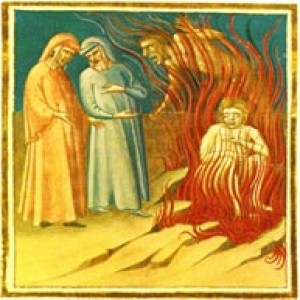
Tuesday Apr 26, 2022
Dante and The Sin of Ulysses with Prof. Adam Cooper
Tuesday Apr 26, 2022
Tuesday Apr 26, 2022
The eighth circle of Dante’s Hell are the Malabolge, the evil ditches. In the eighth evil ditch false counselors are punished, trapped in flames. Dante the pilgrim asks Virgil his guide about one flame in particular Virgil answers, "Within this flame find torment Ulysses and Diomedes.”
Ulysses is also known as Odysseus who, after conquering Troy, wandered ten years trying to get home to his kingdom of Ithaca, to his father, Laertes, to his beloved wife, Penelope, and to their son Telemachus. After he finally returns to all that was dear to him, Dante tells us, Odysseus succumbed to wanderlust "to gain experience of the world and learn about man’s vices, and his worth."
The voyage did not end well. Death and Hell take him. But did he deserve to be in Hell? Was his sin really as great as all that?
Prof. Adam Cooper has been teaching Dante helps us understand.

